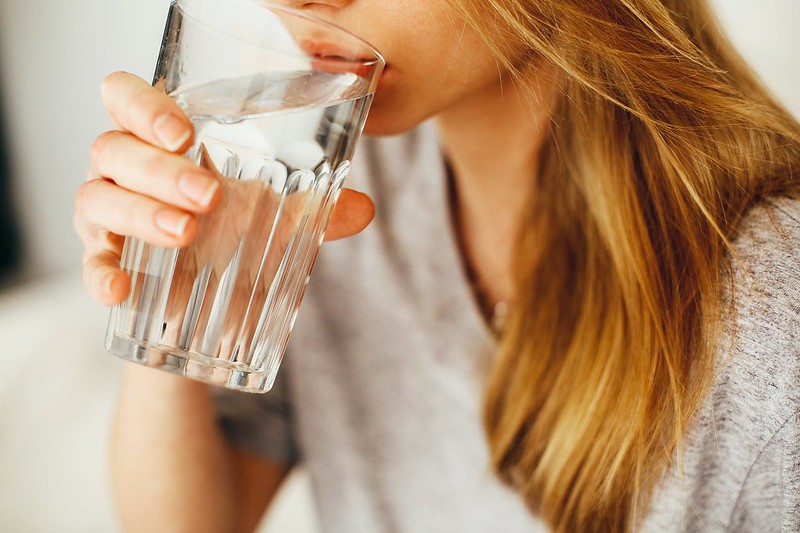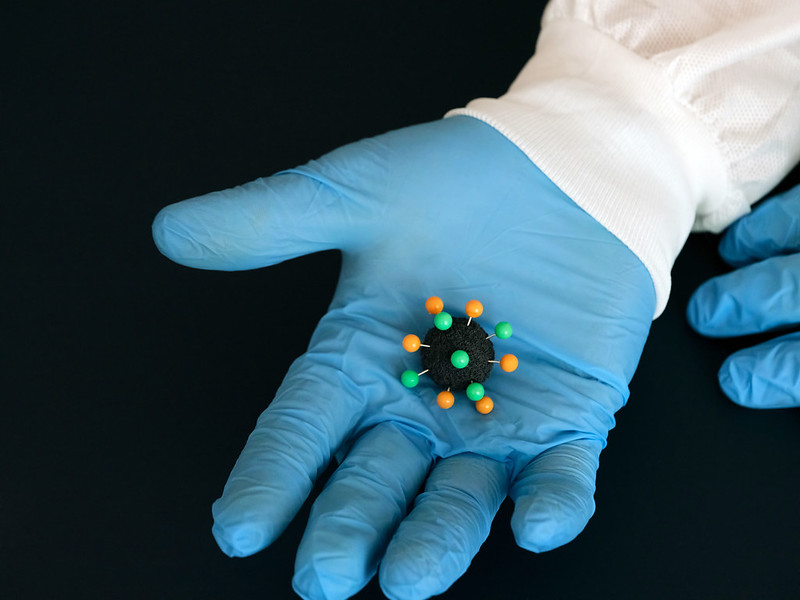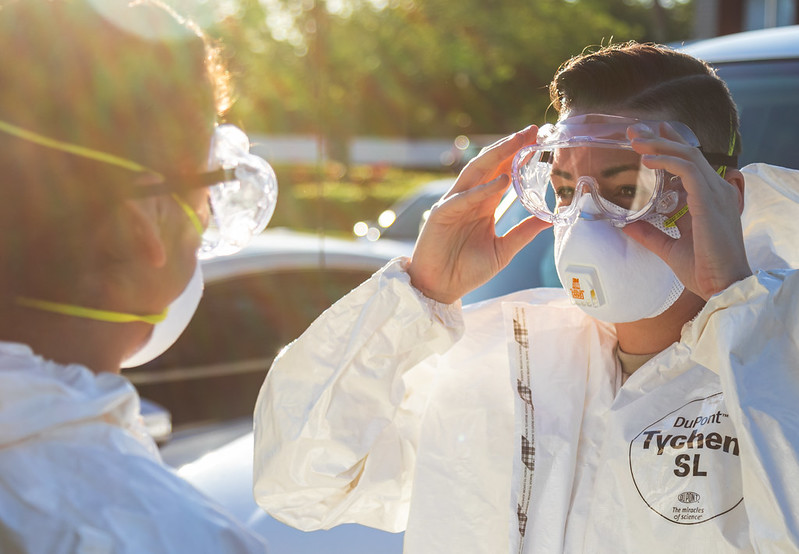SHARES

“Can COVID-19 Spread Through Water? What if someone sneezes or coughs in swimming pools or hot tubs? Will I get COVID-19 if I share the same pool? How about sharing drinking water?” Lucy is worried if COVID-19 can spread through water.
Specifically, COVID-19 is caused by a species of coronavirus, SARS-CoV-2 that spreads from person-to-person through human respiratory droplets. The virus can survive outside of human body for hours to days. For instance, infected persons, may cough, sneeze or breathe out droplets containing coronavirus which subsequently may land on to surfaces such as doorknobs, lift buttons, basin and faucets. Anyone coming into contact with such surfaces may touch their own nose and mouth and fall sick.
If we are too close, within 6 feet, to the sneezing and coughing, we can even inhale these virus-laden droplets in the air. So, what happens when these droplets fall onto water in pools and tubs?
Can COVID-19 Spread In Public Pools And Hot Tubs?
The SARS-CoV-2 virus has an outer envelope that is relatively unstable. This means when it is dry and without water, the virus can become inactive. Similarly, alcohol sanitisers used to disinfect our hands have high alcohol concentration (60-97%), acting as a dehydrating agent removing water needed by the virus.
That is why this virus thrives and spreads through moist respiratory droplets although the virus can only survive for hours to days outside of human body.
Having said so, there is no evidence on record of COVID-19 spreading through swimming pools and hot tubs. Likewise, the last pandemic caused by a similar coronavirus, SARS, does not seem to spread through water. This is because the outer envelope of the virus is susceptible to oxidants. For example, the small quantity of chlorine content in our treated water can easily break the outer envelope of coronavirus, making them inactive. Therefore, in any well treated public pool and hot tubs, the virus is unlikely to survive.
Yet, given the fact that COVID-19 can spread through droplets in air during close contact (<6 feet), we still need to practise social distancing in pools and hot tubs. Also when out of the pool, wear a face mask whenever possible. More importantly, follow the guidance of local operators and government to prevent the spread of COVID-19.
Can COVID-19 Spread Through Drinking Water?
Well-treated pipe water with sufficient free chlorine concentration (≥0.5 mg/L) throughout the entire distribution system can prevent contamination of water by COVID-19. To date, there is no reported case of virus spread through drinking water. However, do not share any tableware, food or water with a person having COVID-19. The virus may still spread through contaminated surfaces. Make sure to wear personal protective equipment such as gloves, apron, and face mask when cleaning and disinfecting the surrounding environment of a sick person including food utensils, toilet, highly touched surfaces, clothing and bedding.
Can COVID-19 Spread Through Sewage?
There are a few reports about finding the virus in human stool. The same was reported during the last SARS epidemic. Despite that, to date there are no known cases of spread through human faeces and sewage waste. This is likely due to proper sanitation and sewage treatment and handling. Yet, caution should be practised when coming into contact with human waste and sewage. Always protect yourself by wearing full personal protective equipment when cleaning soiled clothing and toilet. Flush the toilet with the lid closed.
Conclusion
COVID-19 virus is susceptible to chlorine in treated water. Therefore, it is unlikely for virus to spread through treated/boiled drinking water and well-maintained swimming pools and hot tubs. Also, despite the fact that coronavirus is found in human stool, there are no known cases of virus spread through sewage. Make sure to protect ourselves with good personal hygiene and personal protective equipment when necessary. Lastly, we should never take our sanitation system, water and sewage treatment system for granted. 
Find a GP/Family Doctor in Malaysia, on GetDoc
Find a GP/Family Doctor in Singapore, on GetDoc
References:
1. Water, sanitation, hygiene, and waste management for the COVID-19 virus interim guidance [Internet]. World Health Organization and United Nations Children’s Fund. 2020. (Available from:https://apps.who.int/iris/rest/bitstreams/1272446/retrieve; last updated on 2020 Mar 19; last accessed on 2020 June 19)
2. National Center for Immunization and Respiratory Diseases. Coronavirus disease 2019 (COVID-19): frequently asked questions – water [CDC]. U.S. Department of Health & Human Services. 2020. (Available from:https://www.cdc.gov/coronavirus/2019-ncov/faq.html; last updated on 2020 June 19, last accessed on 2020 June 19)
by Chang Xian
View all articles by Chang Xian.






